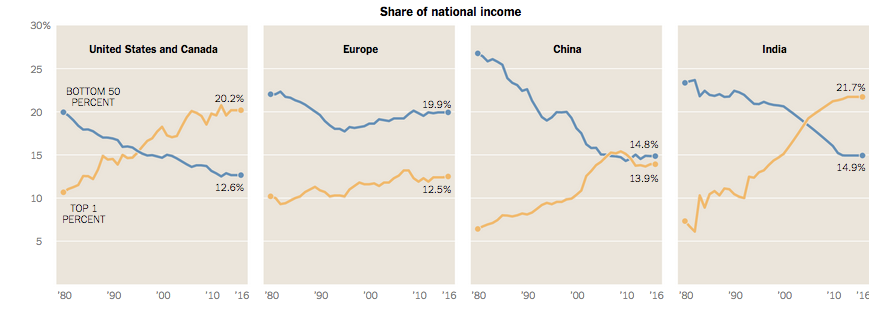Global inequality, after widening for decades, has stabilized. The share of the world’s income captured by the top 1 percent has shrunk since its peak on the eve of the financial crisis. The bottom half of the population is reaping its biggest share of the global pie since Ronald Reagan was elected president of the United States.
But here’s the bad news: The respite probably won’t last. Despite rapid strides among developing economies like China and India, which have been closing the income gap with the world’s richer nations, growing inequality within almost every country will drive a further concentration of income around the globe.
Examining the “World Inequality Report” — published Thursday by the creators of the World Wealth and Income Database, who include the economists Thomas Piketty and Emmanuel Saez — it is tempting to see the rising concentration of incomes as some sort of unstoppable force of nature, an economic inevitability driven by globalization and technology. The report finds that the richest 1 percent of humanity reaped 27 percent of the world’s income between 1980 and 2016. The bottom 50 percent, by contrast, got only 12 percent.




